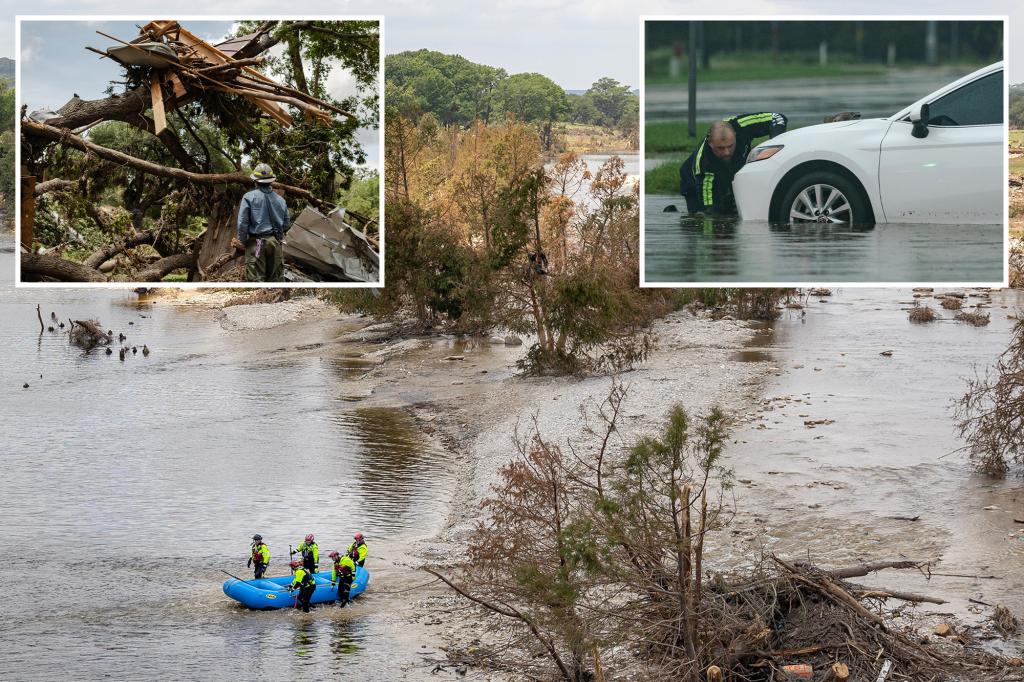Carolinas on High Alert: Emergency Declarations and Evacuations Amid Wildfire Threats
As wildfires relentlessly sweep through the Carolinas, officials have declared a state of emergency, prompting urgent evacuations aimed at safeguarding public safety. The escalating crisis raises significant questions about regional preparedness, community resilience, and the environmental impacts of such devastating events. In this article, we will explore the current wildfire situation in the Carolinas, the implications of the emergency declarations, and how residents can better prepare for future incidents.
The Current Wildfire Crisis in the Carolinas
In recent weeks, the Carolinas have faced an unprecedented surge in wildfire activity, fueled by a combination of high temperatures, prolonged drought conditions, and strong winds. The situation has become dire, with fires rapidly spreading across various counties, threatening homes, wildlife, and natural resources. As of this writing, multiple counties have reported extensive damage, prompting state officials to take immediate action.
According to the North Carolina Forest Service, several significant wildfires have been reported, leading to the mobilization of firefighting resources from neighboring states. The South Carolina Forestry Commission has echoed these concerns, highlighting that the risk of wildfires is at an all-time high. Residents in affected areas are urged to remain vigilant, as the situation can change rapidly.
Emergency Declarations and Their Importance
The declaration of a state of emergency is a critical step for officials facing the wildfire threat. This declaration allows for the mobilization of state resources, including manpower, equipment, and funding, to combat the fires effectively. It also enables law enforcement to enforce mandatory evacuations in areas deemed at high risk.
- Access to Resources: Emergency declarations facilitate quicker access to firefighting resources, including additional personnel and equipment from other regions.
- Legal Authority: Officials gain the legal authority to enforce evacuations and restrict access to affected areas, ensuring public safety.
- Financial Assistance: The declaration opens avenues for federal aid, which can be crucial for recovery efforts post-crisis.
Evacuations: Safety First
In light of the escalating wildfire threats, officials have implemented mass evacuations in several areas across the Carolinas. These evacuations are essential to protect residents from the immediate dangers posed by the wildfires, including smoke inhalation, property loss, and potential injuries.
Residents in evacuation zones are advised to follow these guidelines:
- Stay Informed: Monitor local news and emergency services for updates on evacuation orders and fire conditions.
- Prepare an Emergency Kit: Keep a kit ready with essentials, including medications, water, food, important documents, and clothing.
- Have a Plan: Know your evacuation routes and have a plan for where you will go if you need to leave your home.
Community Response and Support
The community response to the wildfire threat has been commendable. Local organizations, volunteers, and even neighboring states have rallied to assist those affected. Shelters have been established to provide safe havens for evacuees, offering food, medical assistance, and emotional support.
Moreover, social media platforms have become vital for disseminating information and connecting those in need with resources. Community members have been sharing updates, offering shelter, and organizing relief efforts to support firefighters and evacuees alike. This spirit of cooperation exemplifies the resilience of the Carolinas in times of crisis.
Environmental Impacts of Wildfires
While the immediate focus is on public safety, it is also crucial to consider the long-term environmental impacts of wildfires in the Carolinas. Forest ecosystems are particularly vulnerable, and the aftermath of wildfires can lead to significant ecological changes.
- Loss of Habitat: Wildlife habitats can be destroyed, leading to displacement and loss of biodiversity.
- Soil Erosion: The protective vegetation is burned away, increasing the risk of soil erosion and affecting water quality.
- Air Quality: Smoke from wildfires can severely deteriorate air quality, posing health risks to residents far beyond the immediate fire zone.
Experts emphasize the importance of sustainable practices and forest management to mitigate the risks of future wildfires. Controlled burns, for instance, can help reduce the buildup of flammable materials in forests, potentially lessening the severity of wildfires.
Preparedness for Future Wildfire Threats
The recent events in the Carolinas highlight the need for robust preparedness measures in the face of increasing wildfire threats. Here are some steps residents can take to prepare:
- Create Defensible Space: Clear vegetation and debris around your home to create a buffer against wildfires.
- Stay Educated: Attend community workshops on wildfire preparedness and emergency response plans.
- Sign Up for Alerts: Register for local emergency alerts to receive real-time information about wildfires and evacuations.
Conclusion: A Path Forward
The current wildfire threats in the Carolinas serve as a stark reminder of the increasing risks posed by climate change and environmental degradation. However, through community cooperation, effective emergency management, and a commitment to preparedness, residents can navigate these challenges. While the road to recovery may be long, the resilience of the Carolinas and its people will undoubtedly shine through as they confront these adversities together. By learning from this experience, we can build a safer future for all.
As we move forward, it is essential to support local initiatives aimed at wildfire prevention and to advocate for policies that promote sustainable land management practices. The time to act is now, for the safety of our communities and the preservation of our natural landscapes.
See more Your Daily Weather



